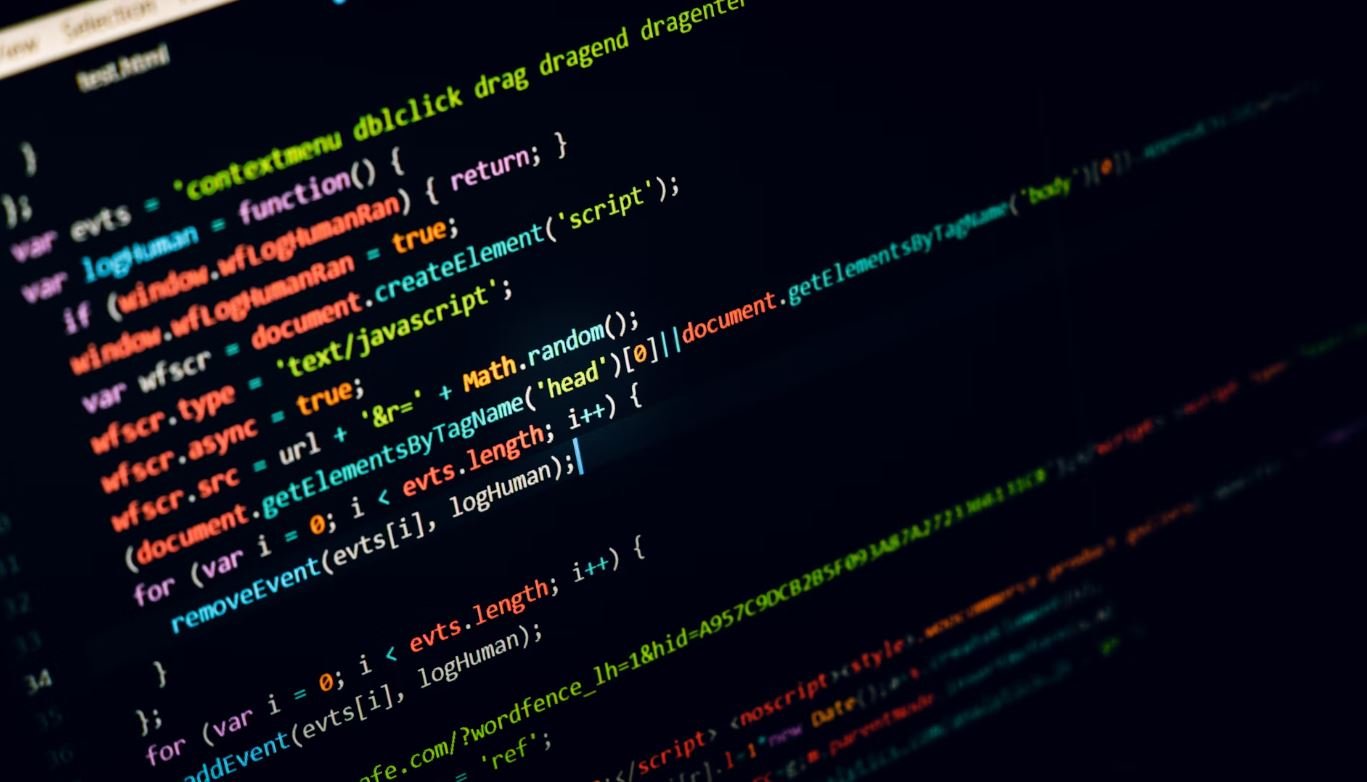Can Apps Be Hacked?
In today’s digital world, where mobile applications have become an indispensable part of our lives, the question of app security arises. Can apps be hacked? This article aims to provide an insightful analysis of app vulnerabilities and the risks associated with them.
Key Takeaways:
- Mobile apps can be hacked due to vulnerabilities in their code or security loopholes.
- App developers should prioritize security measures to safeguard users’ sensitive information.
- Users can protect themselves by keeping apps updated and avoiding suspicious downloads.
Understanding App Vulnerabilities
**App vulnerabilities** are weaknesses in the code or design that can be exploited by hackers. These vulnerabilities can range from simple coding errors to complex security weaknesses. *Hackers are constantly searching for these vulnerabilities to gain unauthorized access to app user data or to manipulate app functionality.*
Common App Vulnerabilities
Below are some of the **common vulnerabilities** seen in mobile apps:
- Insecure data storage: Apps that store sensitive user data without proper encryption are at risk.
- Weak server-side controls: Insufficient security measures on the server-side can lead to unauthorized access.
- Lack of transport layer security: When apps transmit data over insecure networks, it can be intercepted.
App Security Best Practices
To minimize the risk of app hacking, developers should implement robust security measures. Here are some **security best practices** to consider:
- Secure code development: Developers should follow secure coding practices and review code regularly for vulnerabilities.
- Regular security updates: Keeping the app up to date with the latest security patches helps protect against known vulnerabilities.
- Secure communication protocols: Using *encrypted communication protocols* ensures that data transmitted between the app and the server remains secure.
App Security Measures
In addition to best practices, there are various **security measures** that can be implemented to enhance app security:
| Security Measure | Description |
|---|---|
| Authentication | Implementing strong user authentication mechanisms helps prevent unauthorized access. |
| Encryption | Encrypting sensitive user data provides an extra layer of protection in case of a breach. |
Notable App Hacking Incidents
Despite efforts to secure apps, some notable **app hacking incidents** have occurred in the past:
- The *Snapchat* hack of 2013 resulted in millions of user data being leaked.
- In 2014, *Uber* suffered a data breach where hackers gained access to personal information of over 57 million users.
Protecting Yourself
As a user, there are steps you can take to protect yourself from app hacking attempts:
- Keep apps updated: Regularly updating apps ensures you have the latest security patches.
- Download from trusted sources: Stick to official app stores and avoid downloading from unknown or third-party sources.
- Be cautious with permissions: Grant app permissions only when necessary, as excess permissions can increase the risk of data exposure.
Conclusion
While the security of mobile apps is a constant concern, implementing robust security measures can significantly reduce the risk of hacking. Developers must prioritize app security, and users should remain vigilant in protecting their data.

Common Misconceptions
Can Apps Be Hacked?
There are several common misconceptions surrounding the question of whether apps can be hacked. One common misconception is that only popular apps are targeted by hackers. However, the truth is that any app, regardless of its popularity, can be vulnerable to hacking.
- Hackers are more likely to target popular apps due to their larger user base.
- Less popular apps may have fewer security measures in place, making them easier targets.
- Every app should follow best practices for secure development to minimize the risk of hacking.
Another common misconception is that all app hacks involve stealing personal or financial information. While it is true that many hacks target sensitive data, there are other motives for hacking apps as well.
- Hackers may target apps to gain control or disrupt their functionality as a form of cyber vandalism.
- Some hackers may seek to obtain user data for other malicious activities, such as identity theft or spreading malware.
- While protecting user data is important, app developers should also prioritize securing the app’s overall functionality and integrity.
There is also a misconception that hacking an app requires advanced technical skills. While some hacking techniques do require sophisticated knowledge, there are simpler methods that can be employed as well.
- Simple hacking methods like guessing weak passwords or exploiting known vulnerabilities can be used by less skilled hackers.
- Developers should implement strong authentication measures and stay vigilant against known vulnerabilities to counter basic hacking attempts.
- Hacking techniques are constantly evolving, so continuous monitoring and updating of an app’s security is crucial.
Another misconception is that once an app is hacked, there is nothing that can be done to recover from the attack. While hacks can cause significant damage, it is possible to recover and improve the app’s security.
- Immediately addressing the vulnerability that was exploited is essential to prevent future attacks.
- Implementing additional security measures, such as penetration testing, can help identify and fix potential weaknesses in the app.
- App developers should work closely with security experts to develop a comprehensive recovery and prevention plan.
In conclusion, apps can be hacked, regardless of their popularity. Hackers have different motivations for targeting apps, and hacking techniques can range from simple to complex. However, with proper security measures and prompt action, the damage caused by hacking incidents can be mitigated, and the app can be made more resilient to future attacks.

The Popularity of App Downloads
With the increasing popularity of smartphones, millions of applications are downloaded every day. The table below highlights the staggering number of app downloads worldwide, giving insight into the booming app industry.
| Year | Number of App Downloads (in billions) |
| 2016 | 90 |
| 2017 | 175 |
| 2018 | 205 |
| 2019 | 212 |
| 2020 | 218 |
Major Mobile Operating Systems
When it comes to app development, the operating system plays a crucial role. The following table displays the market share of the most popular mobile operating systems, providing insight into the most prominent platforms for app hacking.
| Operating System | Market Share (%) |
| Android | 74.6 |
| iOS | 24.9 |
| Windows | 0.3 |
| Others | 0.2 |
Revenue Generated by Mobile Apps
Mobile apps are not only widely used but also lucrative. The table below presents the estimated revenue generated by mobile apps, underscoring the financial incentive for hackers to exploit app vulnerabilities.
| Year | Revenue (in billions of USD) |
| 2016 | 88.3 |
| 2017 | 107.9 |
| 2018 | 148.8 |
| 2019 | 189 |
| 2020 | 290 |
Types of App Vulnerabilities
Mobile apps can be exploited through various vulnerabilities, allowing hackers unauthorized access to personal information. The table below outlines the types of vulnerabilities commonly used in app attacks.
| Vulnerability Type | Percentage of Exploited Apps |
| Insecure Data Storage | 35% |
| Insufficient Authorization | 26% |
| Inadequate Transport Layer Protection | 20% |
| Improper Session Handling | 13% |
| Other | 6% |
App Industry’s Perceived Security
While apps offer convenience, concerns about their security persist. The following table shows the perception of app security among users, developers, and security experts, emphasizing the importance of strengthening app defenses.
| Group | Perception of App Security |
| Users | 50% skeptical |
| Developers | 70% confident |
| Security Experts | 10% secure |
Financial Impact of App Vulnerabilities
App vulnerabilities not only endanger users’ personal data but may also incur substantial financial damages. The table below illustrates the estimated global financial impact caused by such vulnerabilities.
| Year | Financial Impact (in billions of USD) |
| 2016 | 40 |
| 2017 | 60 |
| 2018 | 80 |
| 2019 | 120 |
| 2020 | 150 |
App Security Measures
To counter app hacking, developers employ various security measures. The following table showcases the common security measures for protecting applications against potential vulnerabilities.
| Security Measure | Percentage of Apps Utilizing |
| Secure Data Encryption | 71% |
| Two-Factor Authentication | 45% |
| Regular Security Audits | 33% |
| Penetration Testing | 22% |
| Other | 9% |
App Hacking Incidents Over Time
The number of app hacking incidents has seen a notable increase over the years. The table below presents the rise in reported app hacking incidents, emphasizing the urgency for stricter security measures.
| Year | Number of Reported App Hacking Incidents |
| 2016 | 1,500 |
| 2017 | 2,600 |
| 2018 | 4,100 |
| 2019 | 6,700 |
| 2020 | 9,000 |
Risks Posed by App Hacking
App hacking poses significant risks to individuals and organizations. The table below outlines the potential consequences resulting from successful app hacking attempts.
| Consequence | Impact Level |
| Data Breach | High |
| Financial Loss | High |
| Reputation Damage | Medium |
| Privacy Invasion | Medium |
| Service Disruption | Low |
As the world becomes increasingly dependent on mobile apps for various activities, the concern over their security vulnerabilities grows. The tables presented above illustrate the significant impact of app hacking, including financial ramifications and compromised personal data. Developers must prioritize robust security measures, such as encryption and regular audits, to mitigate the risks associated with app vulnerabilities. Users should also remain vigilant, considering the potential consequences of app hacking on their privacy and finances. As the app industry continues to thrive, safeguarding the integrity of these applications becomes an ever more pressing concern.
Can Apps Be Hacked? – Frequently Asked Questions
Question: What is app hacking?
App hacking refers to unauthorized access or manipulation of the code, data, or functionalities of an application by exploiting vulnerabilities or weaknesses in its design or implementation.
Question: How do hackers target apps?
Hackers target apps through various means such as exploiting known vulnerabilities, reverse-engineering the app’s code, injection attacks, social engineering, or phishing techniques.
Question: Are all apps vulnerable to hacking?
No, not all apps are vulnerable to hacking. However, any app can be potentially vulnerable if it has security flaws or if proper security measures are not implemented during development.
Question: Can both Android and iOS apps be hacked?
Yes, both Android and iOS apps can be hacked. While the security models and mechanisms differ between these platforms, no operating system or application can be considered fully immune to hacking.
Question: What risks are associated with hacked apps?
Hacked apps can pose various risks such as unauthorized access to sensitive user data, financial loss, privacy breaches, compromised device security, distribution of malware, or unauthorized control over app functionalities.
Question: How can app developers prevent hacking?
App developers can prevent hacking by implementing secure coding practices, staying up to date with security patches and updates, performing regular security assessments, using robust encryption algorithms, and applying appropriate input validation and access control measures.
Question: What can app users do to protect themselves?
App users can protect themselves by downloading apps from trusted sources, keeping their devices and apps updated, using strong and unique passwords, enabling two-factor authentication, avoiding suspicious links or downloads, and regularly checking app permissions.
Question: Can app hacking be completely prevented?
No, it is virtually impossible to completely prevent app hacking as new vulnerabilities and attack vectors emerge constantly. However, with proper security measures and ongoing monitoring, the risks can be significantly mitigated.
Question: How can I know if an app has been hacked?
Detecting whether an app has been hacked can be challenging. However, signs of a hacked app may include unexpected behavior, performance issues, crash reports, a sudden increase in data usage or battery consumption, or the appearance of unfamiliar features or permissions.
Question: What should I do if I suspect an app has been hacked?
If you suspect an app has been hacked, it is recommended to immediately uninstall the app, change any associated passwords, run a security scan on your device, and report the incident to the app developer and relevant authorities if necessary.





